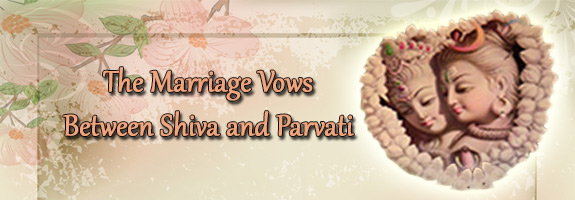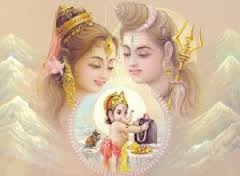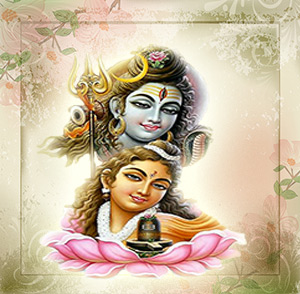The Marriage Vows Between Lord Shiva and Parvati Devi
Our lives are filled with relationships, but very few take the necessary steps to seriously commit the totality of themselves to another. Yet, successful relationships require this!
These beautiful vows between Lord Shiva and Parvati Devi will enchant all of you who are seeking a Divine Communion – either with a spouse or a significant other. Take the time to understand these Divine Vows and review your own commitments. By attentively putting your promises into practice, your relationship is destined to blossom in Divinity!

Parvati: It is my great privilege that, because of my actions in my previous births, you have become my husband and I am your wife.
Shiva: I will always protect you with my Love. You remain without concern. I will remain with you both in pleasure and in pain.
Parvati: In circumstances of pain, I will maintain patience, and in pleasure I will express my delight.
In both pleasure and in pain I will always be with you. I will protect and nourish our children, my husband, and our family.
Shiva: I will provide all the necessities for life for our family, including food, clothing, and shelter, whatever is needed. I will seek your agreement in all matters of our household life.
Parvati: I will remain contented in any standard you choose to maintain us, and I will always respect and obey your every order. I will always prepare food for you and our family, and assure that you are always satisfied with food.
Shiva: I will always enjoy whatever you give me to eat, and I will never have desires from any other woman. I will not make any other woman my source of nourishment.
Parvati: I will always adorn myself appropriately, and I will act appropriately in every circumstance. I will dedicate my mind, body, and soul to your satisfaction.
Shiva: Without you I will not perform any actions of Dharma, Yajna, or Puja, or even pursue material gain. You will always be present as the motivation for my every action.
Parvati: In Puja, Yajna, and all acts of dharma, I will always be present to help you. In all acts of dharma, artha, and kama I will always be present to assist you according to the dictates of your mind. Without you I will not contemplate anyone else’s puja, yajna, or acts of dharma.
Shiva: I will always dedicate my mind and renunciation of all selfishness to your greatest delight.
Parvati: Wherever you stay, there I also will stay; wherever you dwell, I also will be by your side. I will never become tired from my beloved or from our love.
Shiva: I will never question your authority to be by my side. I will never leave you or renounce your love. I live with the hope that you will be my source of comfort eternally.
Parvati: All present here are witness that you are my husband and my Lord, and I have offered myself to you completely and eternally.
Shiva: I will always give you my respect. Your desires will be the most important goals of my life. I will never consider that you are inferior to me. You will always be with me as my partner, as I with you.
Lord Vishnu: Defining these as the goals of divine marriage, I pronounce this marriage as consummated.


